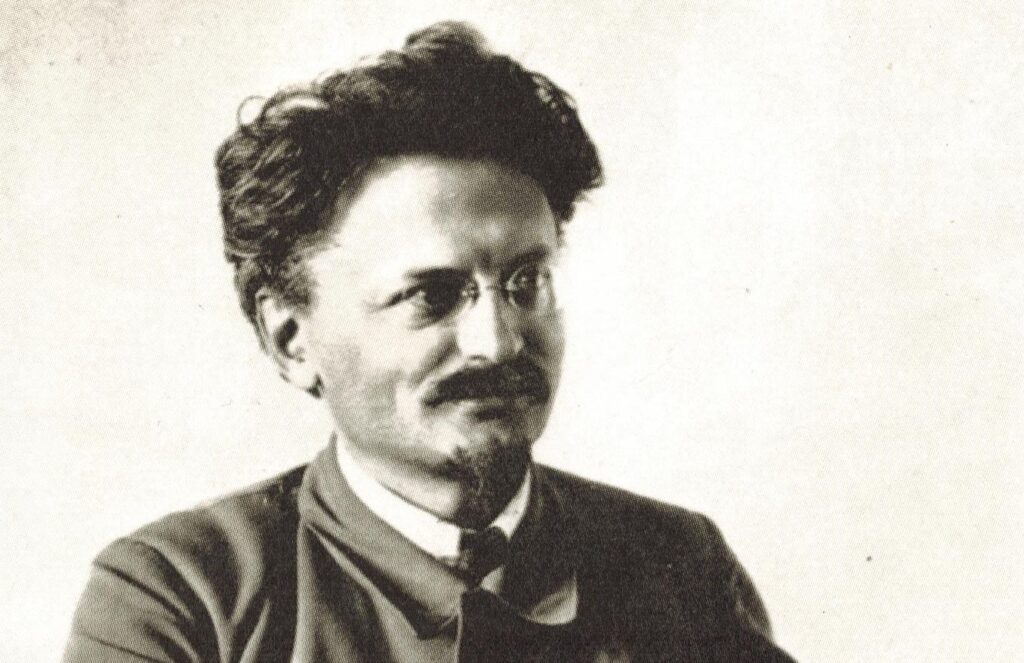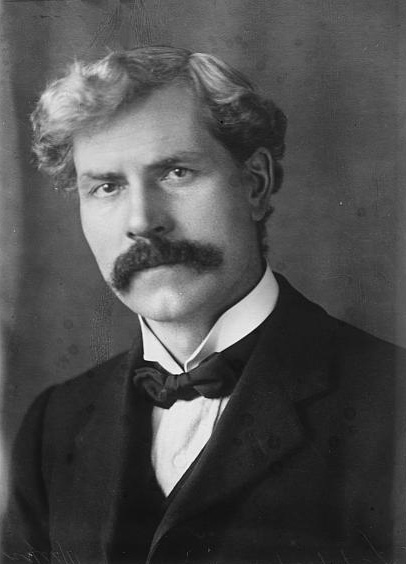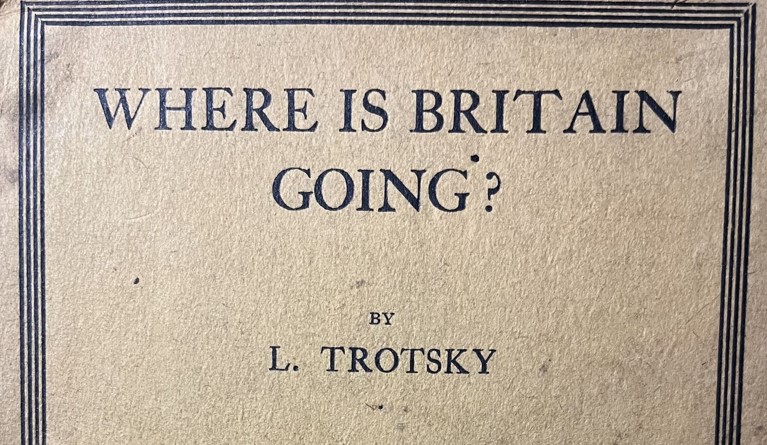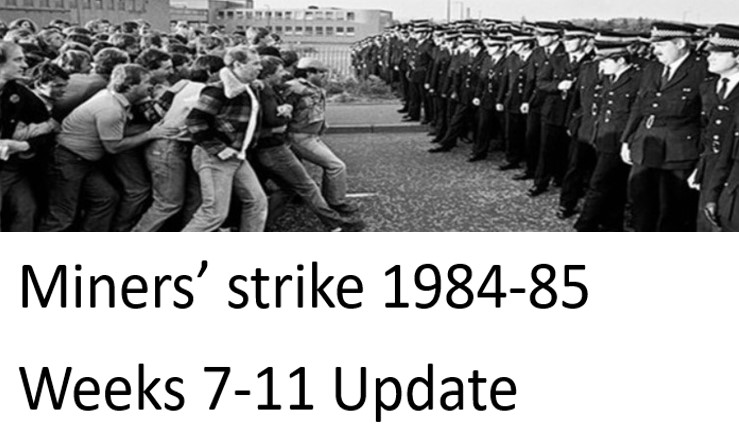Mark Langabeer (Hastings and Rye Labour member) discusses a socialist classic from 1925 and looks at its lessons for the labour movement today. The full text of Trotsky’s work can be found here.
This short book, written after the fall of the first (minority) Labour government in 1924, gives a brilliant account of the economic crisis facing Britain in the post-World War One (WW1) period. The general thrust of the book was soon vindicated. Within a year (May 1926), the Trade Union Congress (TUC) called a general strike in support of coalminers in a dispute over pay cuts and longer hours of work.
It should be borne in mind that Trotsky wrote this book before the final victory of Stalin and the bureaucratic caste that he represented and the change of political direction that resulted from it. Terms such as, “the dictatorship of the working class” and “communism” have been associated with the rise in totalitarianism in the former USSR. This has been one of the barriers for the advance of socialism in Britain and worldwide.
Trotsky analysed the relative decline of manufacturing in the UK. Britain, the former workshop of the world, became increasingly uncompetitive in world markets. Rivals, such as the US and Germany, began to overtake Britain in many branches of industry. The advantage of being the first nation to industrialise was now an obstacle. He observed that the coal Industry needed reorganisation, but private vested interest prevented the changes that were needed. His analysis clarified that unemployment was not just cyclical, but structural in character. It imposed a further financial burden on the UK. Neither free trade or protectionism could solve the problem of low productivity when comparing with the growing power of the US economy.
Gradual change?
Although Trotsky’s writings were intended to give a likely perspective for those who were active in the struggle for socialism, they were also a response to a speech given by Stanley Baldwin, the Conservative Prime Minister. Baldwin had made a speech to a Tory audience, in which he made a case for “gradual change” and used a quote from Trotsky.

Of course, as one of the leaders of the Russian Revolution, Trotsky could hardly be regarded as a supporter of gradual change! The quote was in relation to the need to improve productivity within the USSR. It was pretty rich of Baldwin to claim to be a supporter of gradual and peaceful change himself. After all, he and his party fully supported slaughter of WW1. History demonstrates that there are periods of gradualism that are punctuated by wars and social upheavals.
Parts of Baldwin’s speech were complete fabrications. The establishment were always inclined to be economical with the truth. The ‘Red scare’ campaign in the 1924 General Election was one of those examples. The British ruling class spent £100 million in an attempt to crush the Bolsheviks by force. As Trotsky states, if they had given this as a loan, it would have been beneficial for both nations.
Under capitalism, the benefits of greater efficiency always reward the bosses. The socialist revolution in the USSR was an attempt to secure these benefits for the working class as a whole. Baldwin’s speech about the sanctity of gradualism simply expressed his fear that Britain could follow the example of the Russian workers. This would have had global significance because, at that time, Britain still had an empire that covered 25% of the world’s population.
Reformism v Revolution
Trotsky turned his attention to the British labour movement and pays particular attention to its leadership. He explains that, through bitter experience, the working class created their own political party. The Labour Party rested upon the trade unions. The Tories have always trumpeted the idea of so-called individual freedoms: freedom to break strikes or not to join a union and opposition to the political levy. In truth, it’s about weakening the ability of workers to secure jobs, better pay, conditions and essential services.
Trotsky observed the servile behaviour of many Labour Party Leaders towards the monarchy, the House of Lords and other members of the ruling class. Many Union leaders would attend functions organised by the bosses. Hobnobbing with the upper classes flowed from their politics. They rejected the idea of class struggle and thought that socialism could be achieved by convincing our “masters” of the benefits that this would bring for everyone. Like Baldwin, the Labour Leader, Ramsay MacDonald also believed in gradualism.

Labour leader 1922-31.
Labour Prime Minister, 1924 & 1929-31.
Joined with the Tories in the National Government of 1931.
Reforms are a by-product of fears about social unrest. Trotsky reminded readers that the 1919 National Insurance Act which increased sickness and unemployment benefits was approved because the movers feared social revolution. He pointed out that capitalism was established by revolutionary means. Cromwell’s new model army was also a political movement. During the rise of the Chartism movement during the 1840’s, workers often displayed a revolutionary outlook.
It was argued that Britain was a democracy and that ideas of revolution were only applicable to regimes that are governed by dictatorships. Trotsky argued, however, that democracy never applied to those that lived under British colonial rule. Even in the UK, voting rights had a qualified character.
MacDonald’s reactionary nature
MacDonald revealed his reactionary nature with his views on the Russian revolution. He regarded it as a calamity and something that should be avoided at all costs. Trotsky noted that there was a left-wing within the Labour Party. This was itself an expression of disquiet within the labour movement about the policies of MacDonald and Co. He regarded the socialist and pacifist, George Lansbury, as more sincere but his denial of force in general would render the workers at the mercy of a ruling class that is ruthless when its power and privileges are threatened. What level of force may be necessary, and when, is a matter of tactical consideration and not a general principle.
The aim of Trotsky’s writings was to offer a perspective to the young Communist Party of Great Britain. They had been expelled from the Labour Party and had stood candidates at the 1924 General Election. They only received a total of 53,000 votes. Labour got five and a half million votes! Trotsky believed that the CP could grow rapidly because of Britain’s economic decline and the situation internationally. However, it was on condition that the Communist Party had a correct policy. He described the Party as the memory of the working class. Under a reformist leadership, it’s a short memory.
I think that Trotsky’s writings on Britain in 1925 are still relevant to the situation that we face today. The current Labour Leadership have a similar outlook to the MacDonalds of the past. As with MacDonald, Starmer and his followers will end up on the wrong side of history. Labour’s right-wing, guided by its reformist ideas, will end up in the camp of reaction. Left Horizons wish to see a Labour government because it will accelerate the process of the creation of a mass left-wing that is open to Marxist ideas. Such a development in the party is the key to the socialist transformation in Britain.



